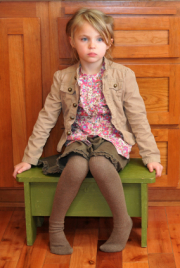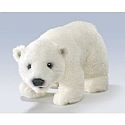 Yesterday I discussed my seemingly unorthodox views on sharing. It invited a great discussion if you want to check it out. This is one of those areas that is merely a parental philosophy that not every one will agree on. Some parents require children to follow sharing rules and take turns with possessions. Other parents choose not to use what feels to them like a coercion tactic. BOTH parents I think want the same thing though…children who are generous and cooperative with other people and assign more importance to people than things. I hope my post on the flaws with the forced sharing mandate illustrate that there is NOTHING wrong with sharing…I have just chosen a different path to the same goal…one that I feel empowers my kids. Maybe this is my world view peeking out. I don’t believe societal ills and selfishness are the result of indulgance by parents, although that may certainly be the case some times. I see these problems as a result of low self esteem and self worth, and inability to show love for other people when they don’t love themselves and see in themselves power for good.
Yesterday I discussed my seemingly unorthodox views on sharing. It invited a great discussion if you want to check it out. This is one of those areas that is merely a parental philosophy that not every one will agree on. Some parents require children to follow sharing rules and take turns with possessions. Other parents choose not to use what feels to them like a coercion tactic. BOTH parents I think want the same thing though…children who are generous and cooperative with other people and assign more importance to people than things. I hope my post on the flaws with the forced sharing mandate illustrate that there is NOTHING wrong with sharing…I have just chosen a different path to the same goal…one that I feel empowers my kids. Maybe this is my world view peeking out. I don’t believe societal ills and selfishness are the result of indulgance by parents, although that may certainly be the case some times. I see these problems as a result of low self esteem and self worth, and inability to show love for other people when they don’t love themselves and see in themselves power for good.
Another area where parents seem to disagree is punitive discipline. Many parents swear by time-outs and other punitive measures when children misbehave. Other parents feel that coercing good behavior with guilt and unpleasant consequences is not an effective teaching tool. I tend to fall to agree more with the second line of thinking…that children will behave better when they feel better and that punishments don’t necessarily teach the lesson we want them to.
So where I am going with this? Well, I have been reading a book by someone I really admire, Jane Nelsen Ed.D. She has written and co-written several wonderful books and the one I have been devouring is Positive Discipline for Preschoolers – Raising Children Who Are Responsible, Respectful, and Resourceful. What I love about the whole concept of positive discipline is that it really encourages parents to be empathetic. It makes you look at traditional ways of dealing with misbehavior and seeing how it may have some effects that we never bargained for. When we send a child to time-out in the corner for example do we think about how we would feel if we were in a social setting and another person became upset with us and made us go sit away from everyone else? Would we be upset to be cast aside like that? Would we feel hurt? Would we feel like we were somehow bad because we failed to meet that person’s expectations? Would we sit there and think about how we can become better or would we sit there and think about how we are a failure?
An early section in this book addresses time-outs and suggests trying positive time-outs or as some people like to call them, time-ins. A positive time-out allows for cooling off for both parent and child. Take the child to a cool down place and stay there with them to work things out peacefully.
One mom told me that her time-in place is a corner where they have pillows and a music player and they sit and play soft music while they talk things out. Another mom I know takes her child to the hugging corner and yet another mom I met online has an easel set up with paper and crayons and when she takes her kids to time-in they are asked to draw a picture of what they feeling…anger, sadness, sleepiness, etc. Then they discuss how they can get what they want in the future without the behavior they displayed earlier.
I like how these tactics are not coercive and they still manage to teach and discipline without making a child feel bad about themselves.
In the Positive Discipline book, Ms. Nelsen recalls how a teacher had a time-in section in her classroom. She filled it with fluffy pillows and cuddly toys and named it Antarctica. Any child could choose to go to Antarctica whenever they need to cool off. It was really a clever way of taking the negative connotations of time-out or the corner and made it whimsical and meaningful. It also taught them a valuable skill…retreating to cool off when we are loosing our cool with someone or a situation and are about to do or say something we shouldn’t. Can I have an Antarctica corner?? LOL.
Well, actually I LOVED this idea so much I think I want to make an Antarctica Cool Off Zone in our home so I started looking for things to make/decorate one. And the cool thing about using Antarctica as the focus is that you could really help reinforce climate change and ecological values as well. Its all good. Here is  some stuff I found, bookmarked, or already have that would be perfect for our Antarctica Cool Off Zone.
some stuff I found, bookmarked, or already have that would be perfect for our Antarctica Cool Off Zone.
* Folkmanis Puppets Polar Bear CubPuppet Plush Toy – Gotta have polar bears in our Antarctica/Chilly/Snowy room. This one is a cuddly puppet that has won 2 children’s toy awards. YES…I know polar bears don’t live in antarctica but stuffed polar bears are much more cuddly than a penguin so we have to have polar bears.
* Plush Baby Emperor Penguin – My kids are crazy about penguins and they are an arctic creature so they deserve a home here too.
* Hugg-a-Planet Pillow – We really like and use our huggable earth pillow here. The kids hold it and lay on it during story time, we use it during homeschool geography lessons, and it has spurred some great conversations about how people live in other countries.
* ImagiPlay Puzzles – We have a few of these and they are really fun. They have two that perfect for a chill out room…a polar bear puzzle and a penguin and chick puzzle.
* For the floor maybe a sheepskin rug to give the appearance of snow. A white flannel sheet would work too. And of course lots of fluffy white pillows everywhere.
* Snowflakes can be made out of paper we have aorund the house…my kids love making them. You can also buy some pre-made and they can used for winter/christmas decor too.
* A snowflake Kaleidoscope would be cool too. I couldn’t find one at Amazon though. Just this classic tin version.
* A big Antarctica wall map.
* Books that would be a good addition:
How One Little Polar Bear Captivated The World (Knut)
The Last Polar Bear: Facing the Truth of a Warming World
Seals And Sea Lions (The Living Ocean)
Sounds like fun huh? I just love creative parenting ideas! Thanks to Jane Nelsen’s Positive Discipline for Preschoolers for inspiring the idea.

